Garages That Kick the ‘Man Cave’ Stereotypes to the Curb
Garages have long been little more than a home’s spare space, ideal for storage, fixing up cars and, for some, a small escape with an old couch and mini fridge. But now, mop up those oil spills because there’s no end to the features that can transform it into something a whole lot more enticing.
The idea of making a garage into a refuge probably originated in postwar America, when magazines like Popular Mechanics were full of do-it-yourself plans for transforming your home place with built-ins. Then, the “man cave” of popular imagination had a big heyday in the 1980s, when garages were fitted with TVs, built-in bars, and a microwave for popcorn. These days, garage retreats are getting a bit more sophisticated—and much more functional.
“Our focus is on transforming garages into clean, bright and functional spaces,” Aaron Cash, a co-founder of Garage Living and head of its franchise systems, said. “People do come to us wanting ‘man caves,’ but that’s not our focus. We’re about recognising the value of and reclaiming the space.”
Garage Living now has 45 franchise locations around the U.S., Canada (where the company is based) and Australia. Makeovers range from $20,000 to $100,000. The goal is to get a family’s accumulated “stuff” off the floor and into the company’s own line of powder-coated cabinets, or mounted on the walls and overhead.
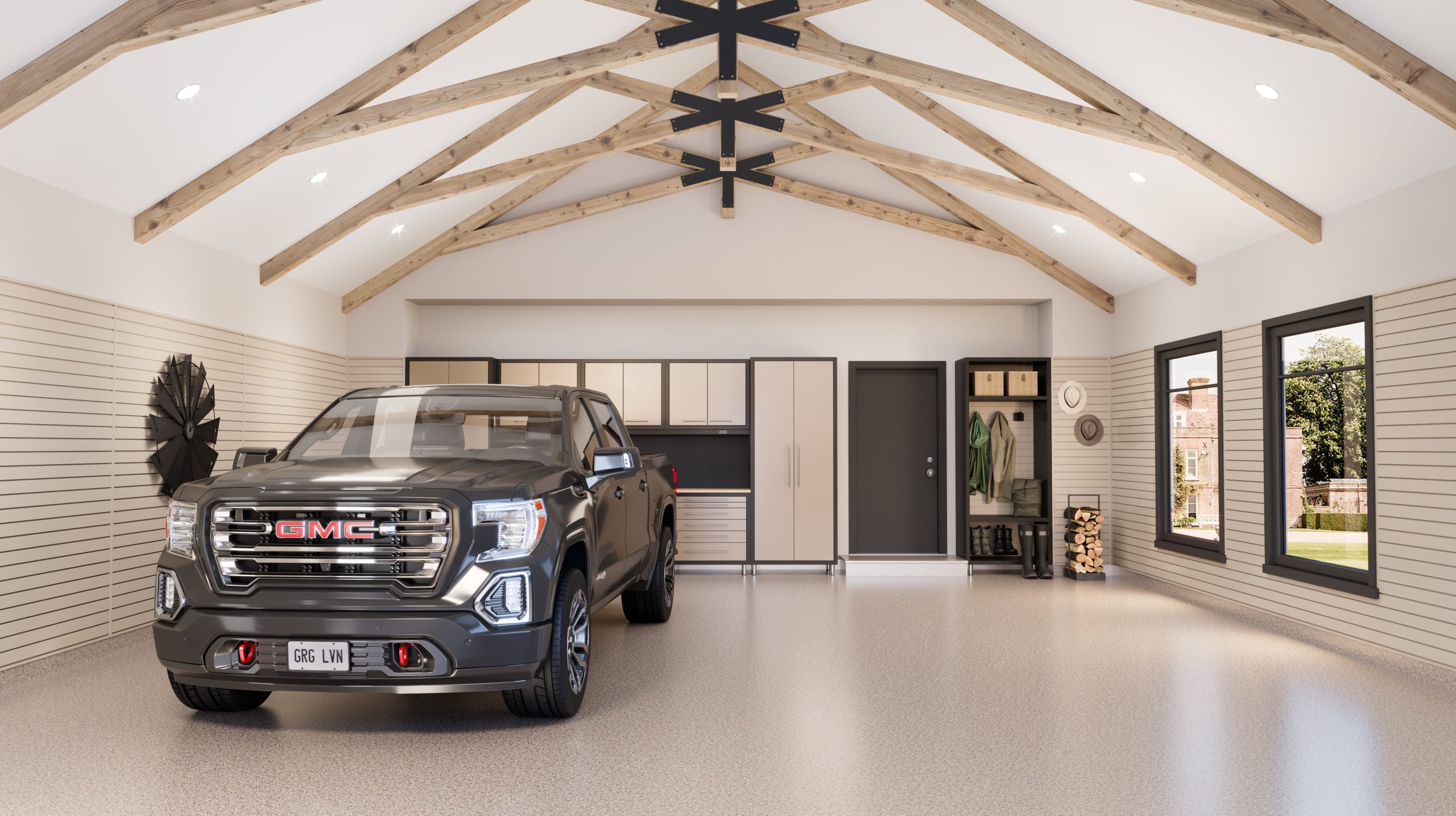
Garage Living
“This is a growing category,” Cash said. “There’s a lot of interest from an affluent clientele with disposable income.”
Not everyone wants their space uncluttered. Today’s popular accessories for garage makeovers include home theatres, high-tech audio equipment, golf simulators, fireplaces with remotes, wine racks, custom flooring (sometimes heated) and lifts that allow a multi-car collection to be displayed in a smaller space.
Meanwhile, for the auto enthusiast, there are tool chests, rotisseries for working on a car’s underside, pressure washers and compressors, engine hoists, work benches, and more.
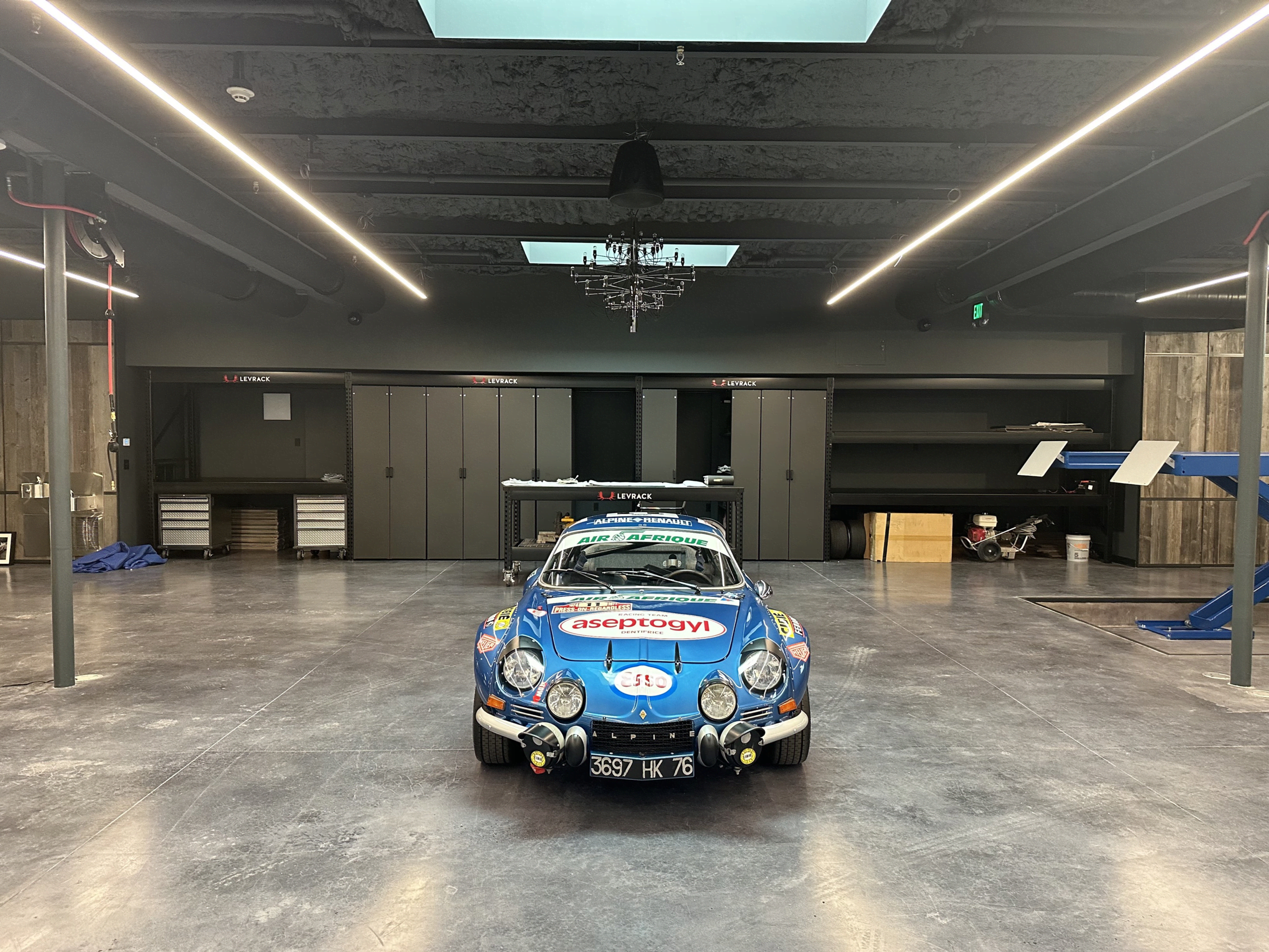
Levrack
Storage space is always at a premium. Levrack, launched in 2016, makes a shelving system that suspends its racks from above. The sections, each with three or more shelves, slide together and apart to maximise space.
Ryan Stauffer, the Nebraska-based co-founder of Levrack, said that 80% to 90% of his company’s business is industrial and commercial, but it’s moving increasingly into residential—with strong buy-in from big car collectors like Jay Leno. The Porsche Classic Factory Restorations facility in Atlanta is also a client.
The Wisconsin- and Nebraska-made units make it possible to collect all the stray tools, cleaners and products that typically live in all corners of the garage and store them out of sight, freeing up a lot of floor space. Units come in seven- to 12-foot widths, with varying depth and height. Prices range up to $7,400 for a 12-foot unit.
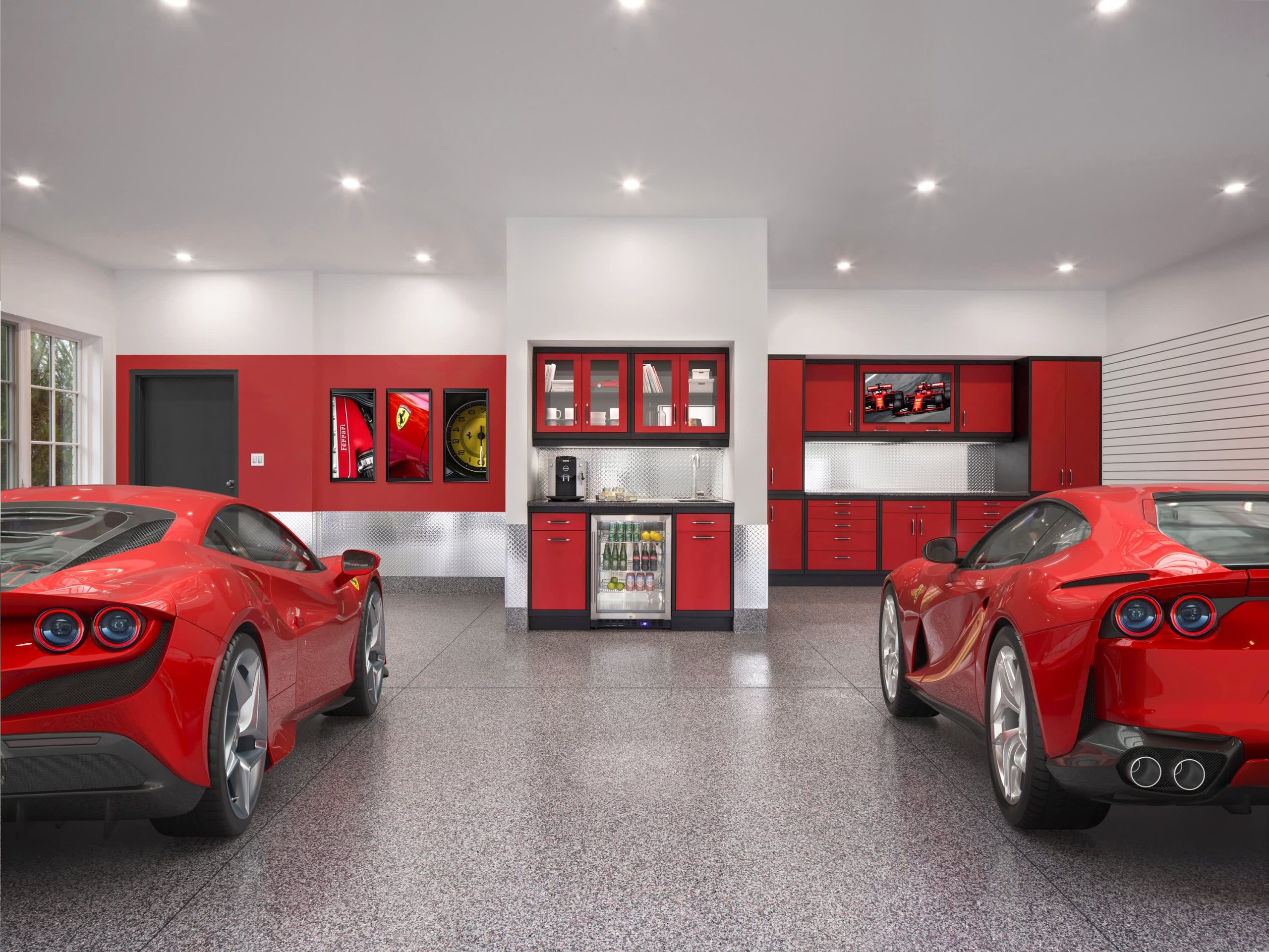
Garage Living
“We appeal to high-end consumers, people who have a lot of gear,” Stauffer said. “The concept goes back to the 1950s for agriculture, healthcare and other industries, and the racks typically have tracks at the floor level. But in the garage space, where dirt, oil and contamination are an issue, it makes more sense to suspend from the top of the rack.”
Taking the modern garage further still is the Hangar Group, which builds “premier garage condominiums,” where people can store their vehicles in luxury.
The first of these was in Riviera Beach, Florida, completed in 2019—it sold out. And the second is in West Palm Beach, near the airport, with a 2024 completion date. The new facility will have more than 60 units, ranging from 1,500 to 4,500 square feet, with a full-time concierge. There will be a members’ club with golf simulators, a lounge and even a boardroom.
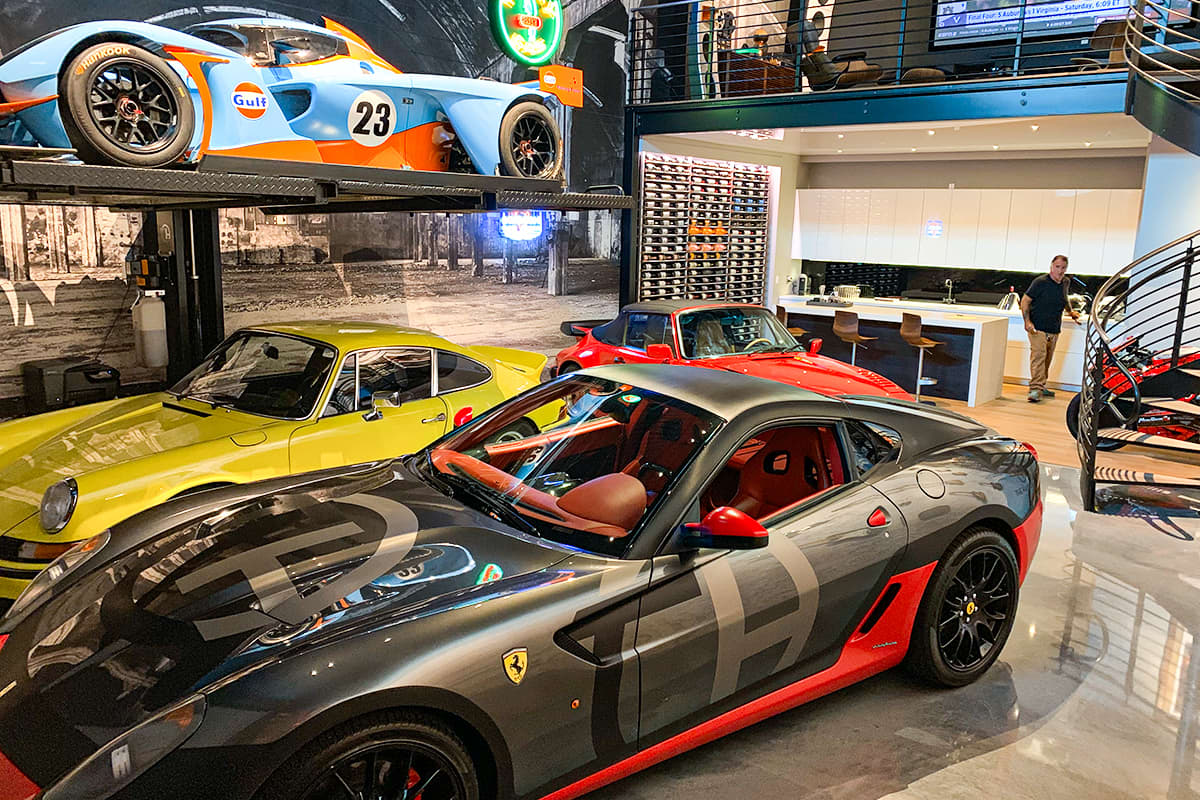
“What we’re doing is a little different,” said Scott Cunningham, founder and CEO of the Hangar Group. “Some of our customers buy as many as three units and furnish them with high-level amenities like $100,000 wine coolers for their million-dollar collections. We get Fortune 500 executives and equity guys. For some, it becomes like a personal museum—but for security reasons a museum with no windows at street level.”
The Hangar obviously appeals to car collectors, some of them with a dozen or more vehicles, and sponsors track days at nearby race meccas Homestead, Sebring and Daytona.
The Palm Beach location is already 70% sold. A third complex will cater to car collectors in the Hamptons, in New York, and ultimately there will be six to eight locations, he said.
“I’m a Ferrari guy at heart,” he said. “Many of our customers are people, like me, who don’t have room for any more cars at home,” he said. “They once traded in their Ferrari 360 for a 430, but now they want to keep them both.” Often, there’s a guitar collection, too.
The Hangar’s concept is similar to another recent phenomenon—full condominiums, with garages attached, located near race tracks—or with their own. Circuit Florida, between Orlando and Tampa, is one of those. The $90 million complex includes a 1.7-mile private track, with 75 two-story condos. The project is now “six weeks out from the asphalt paving,” according to the company. These are units for serious car people—with garages that will accommodate up to six vehicles.
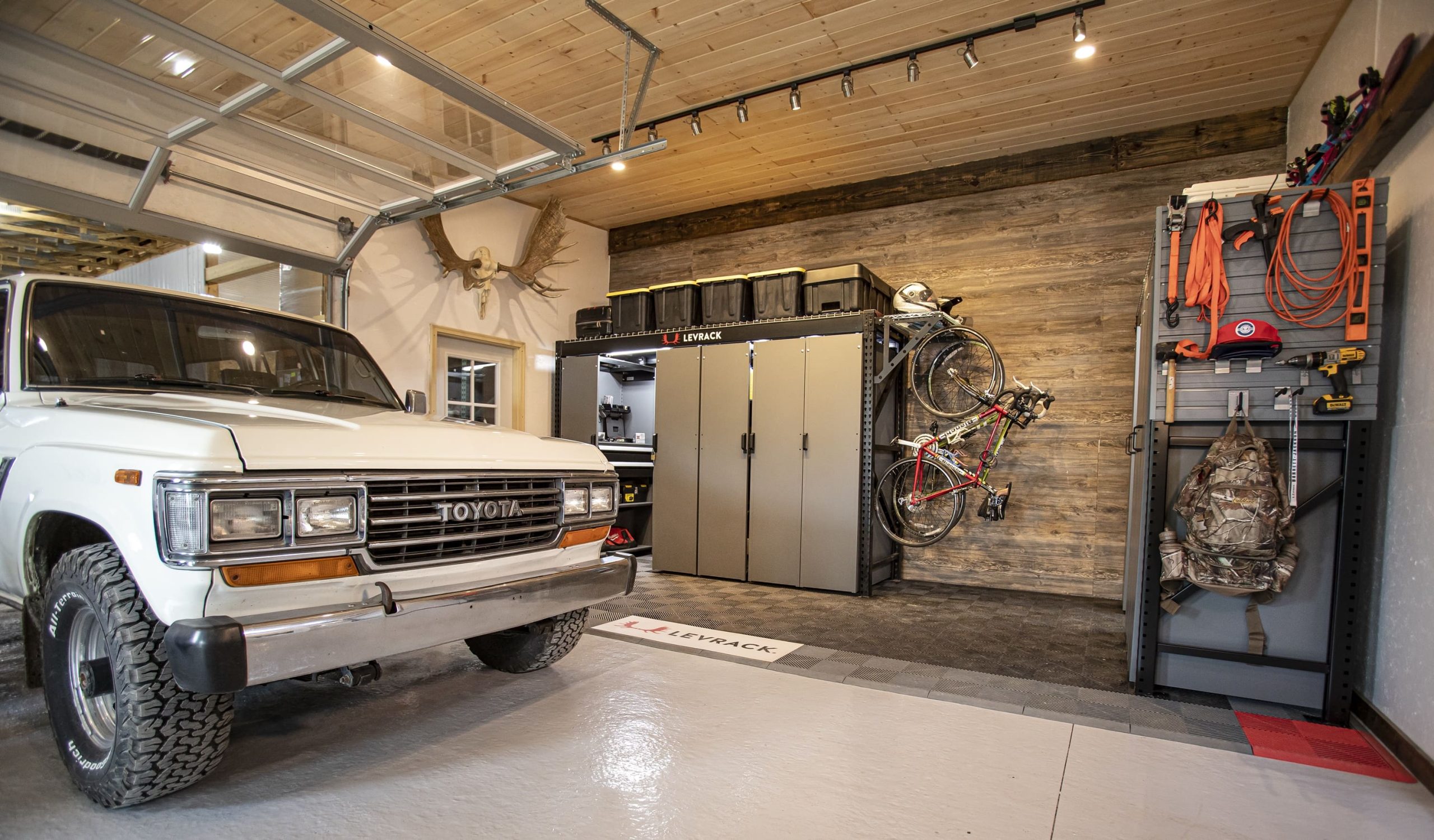
Levrack
This article originally appeared on Mansion Global.
 Copyright 2020, Dow Jones & Company, Inc. All Rights Reserved Worldwide. LEARN MORE
Copyright 2020, Dow Jones & Company, Inc. All Rights Reserved Worldwide. LEARN MORE
This stylish family home combines a classic palette and finishes with a flexible floorplan
Just 55 minutes from Sydney, make this your creative getaway located in the majestic Hawkesbury region.
The remote northern island wants more visitors: ‘It’s the rumbling before the herd is coming,’ one hotel manager says
As European hot spots become overcrowded , travellers are digging deeper to find those less-populated but still brag-worthy locations. Greenland, moving up the list, is bracing for its new popularity.
Aria Varasteh has been to 69 countries, including almost all of Europe. He now wants to visit more remote places and avoid spots swarmed by tourists—starting with Greenland.
“I want a taste of something different,” said the 34-year-old founder of a consulting firm serving clients in the Washington, D.C., area.
He originally planned to go to Nuuk, the island’s capital, this fall via out-of-the-way connections, given there wasn’t a nonstop flight from the U.S. But this month United Airlines announced a nonstop, four-hour flight from Newark Liberty International Airport in New Jersey to Nuuk. The route, beginning next summer, is a first for a U.S. airline, according to Greenland tourism officials.
It marks a significant milestone in the territory’s push for more international visitors. Airlines ran flights with a combined 55,000 seats to Greenland from April to August of this year, says Jens Lauridsen, chief executive officer of Greenland Airports. That figure will nearly double next year in the same period, he says, to about 105,000 seats.
The possible coming surge of travellers also presents a challenge for a vast island of 56,000 people as nearby destinations from Iceland to Spain grapple with the consequences of over tourism.
Greenlandic officials say they have watched closely and made deliberate efforts to slowly scale up their plans for visitors. An investment north of $700 million will yield three new airports, the first of which will open next month in Nuuk.
“It’s the rumbling before the herd is coming,” says Mads Mitchell, general manager of Hotel Nordbo, a 67-room property in Nuuk. The owner of his property is considering adding 50 more rooms to meet demand in the coming years.
Mitchell has recently met with travel agents from Brooklyn, N.Y., South Korea and China. He says he welcomes new tourists, but fears tourism will grow too quickly.
“Like in Barcelona, you get tired of tourists, because it’s too much and it pushes out the locals, that is my concern,” he says. “So it’s finding this balance of like showing the love for Greenland and showing the amazing possibilities, but not getting too much too fast.”
Greenland’s buildup
Greenland is an autonomous territory of Denmark more than three times the size of Texas. Tourists travel by boat or small aircraft when venturing to different regions—virtually no roads connect towns or settlements.
Greenland decided to invest in airport infrastructure in 2018 as part of an effort to expand tourism and its role in the economy, which is largely dependent on fishing and subsidies from Denmark. In the coming years, airports in Ilulissat and Qaqortoq, areas known for their scenic fjords, will open.
One narrow-body flight, like what United plans, will generate $200,000 in spending, including hotels, tours and other purchases, Lauridsen says. He calls it a “very significant economic impact.”
In 2023, foreign tourism brought a total of over $270 million to Greenland’s economy, according to Visit Greenland, the tourism and marketing arm owned by the government. Expedition cruises visit the territory, as well as adventure tours.
United will fly twice weekly to Nuuk on its 737 MAX 8, which will seat 166 passengers, starting in June .
“We look for new destinations, we look for hot destinations and destinations, most importantly, we can make money in,” Andrew Nocella , United’s chief commercial officer, said in the company’s earnings call earlier in October.
On the runway
Greenland has looked to nearby Iceland to learn from its experiences with tourism, says Air Greenland Group CEO Jacob Nitter Sørensen. Tiny Iceland still has about seven times the population of its western neighbour.
Nuuk’s new airport will become the new trans-Atlantic hub for Air Greenland, the national carrier. It flies to 14 airports and 46 heliports across the territory.
“Of course, there are discussions about avoiding mass tourism. But right now, I think there is a natural limit in terms of the receiving capacity,” Nitter says.
Air Greenland doesn’t fly nonstop from the U.S. because there isn’t currently enough space to accommodate all travellers in hotels, Nitter says. Air Greenland is building a new hotel in Ilulissat to increase capacity when the airport opens.
Nuuk has just over 550 hotel rooms, according to government documents. A tourism analysis published by Visit Greenland predicts there could be a shortage in rooms beginning in 2027. Most U.S. visitors will stay four to 10 nights, according to traveler sentiment data from Visit Greenland.
As travel picks up, visitors should expect more changes. Officials expect to pass new legislation that would further regulate tourism in time for the 2025 season. Rules on zoning would give local communities the power to limit tourism when needed, says Naaja H. Nathanielsen, minister for business, trade, raw materials, justice and gender equality.
Areas in a so-called red zone would ban tour operators. In northern Greenland, traditional hunting takes place at certain times of year and requires silence, which doesn’t work with cruise ships coming in, Nathanielsen says.
Part of the proposal would require tour operators to be locally based to ensure they pay taxes in Greenland and so that tourists receive local knowledge of the culture. Nathanielsen also plans to introduce a proposal to govern cruise tourism to ensure more travelers stay and eat locally, rather than just walk around for a few hours and grab a cup of coffee, she says.
Public sentiment has remained in favour of tourism as visitor arrivals have increased, Nathanielsen says.
—Roshan Fernandez contributed to this article.
This stylish family home combines a classic palette and finishes with a flexible floorplan
Just 55 minutes from Sydney, make this your creative getaway located in the majestic Hawkesbury region.






















